Lol. Lola you posted the post before me but I drafted it yesterday night only. But when I pressed the button of post reply, the connectivity of internet also replied me and I had to copy it in word file temporarily.😡😆 Let me post that yesterday's draft as it is here now.
Brilliant topic Semanti. Similar thread I had created in Ramayan serial community of Orkut. Here is its link. And I will repost the contents also over here with more elaboration and modifications (our personal analysis of character comparisons).
http://www.orkut.co.in/Main#CommMsgs?cmm=19451816&tid=5438699804058653263&kw=ramayan+mahabharat
(Criteria of comparison is mentioned in bracket and also elaborated where necessary - at some places, comparison is with the criteria of similarity of situation and at some places the criteria is of mythologically same origin or same relation with Vishnu's incarnation)
(1) Ram - Krishna
(2) Sita (Vishnupriyaa, PRITHVISUTA but having control over AGNI tatva, Reason for war & death of evil, Power of Sati's curse, Form of Parmeshwari) - Rukmini with other queens of Krishna & Radha with other sakhis (Vishnupriyaa & Parameshwari) + Draupadi (AGNISUTA, Reason for war & death of evil, Power of Sati's curse)
(3) Hanuman (SHIV's incarnation & Vaayu's powerful son, devotee of Vishnu's incarnation, Brahmachaari) - Aged Hanumanji lost totally in devotion in Dwapar 😊 + Bhishma (Vasu's incarnation, lived life like SHIV drinking poison of the earth sacrificing for peace and viewing good & bad children equally, devotee of Vishnu, Brahmachaari) + Bheem (Vaayu's powerful son, Obedient of Vishnu's incarnation)
(4) Lakshman (Incarnation of Shesh and brother of Vishnu's incarnation) - Balraam (Incarnation of Shesh and brother of Vishnu's incarnation)
(5) Bharat + Shatrughna (Brothers of Vishnu's incarnation other than SHESH's incarnation, Bharat's love was purified by Janak's decision in Chitrakoot and he was given the gift of knowledge of true love - filling up of incompleteness in love) -Uddhav (Brother of Vishnu's incarnation other than SHESH's incarnation, Uddhav's gyan was purified by Gopis and he was given the gift of true knowledge of love - filling up of incompleteness in gyan)
(5) Vibhishan (Devotee of Vishnu's incarnation, Knowledgeable Dharmaatmaa & Man of truth, Ravan's minister, Subject of Ravan's hatred, Ravan's successor for kingdom, Lord's supported friend, Switching over the side to Dharma) - Yudhishthir (Obedient of Vishnu's incarnation, Dharmaraaj/Dharma's son & Man of truth, Subject of Duryodhan's hatred, Dhritaraashtra's successor for kingdom, Lord's cousin cum supported friend) + Vidur (Devotee of Vishnu's incarnation, Dharma's incarnation, Dhritaraashtra's minister always giving opinions against will and leaving the post before war) + Yuyutsu (Switching over the side for Dharma) + Vibhishan himself present in Dwapar in Digvijay parva of Sabha parva 😊
(6) Vaali (Elder brother against whom Vishnu's incarnation supported the younger) - Karna (Elder brother against whom Vishnu's incarnation supported the younger)
or
Vaali (Indraputra) - Arjun (Indraputra)
(7) Sugreev (Younger brother supported by Vishnu's incarnation, friend of Vishnu's incarnation) - Arjun (Younger brother supported by Vishnu's incarnation, friend of Vishnu's incarnation)
or
Sugreev (Sooryaputra) - Karna (Sooryaputra)
(8) Nal + Neel (Twins and Vishnu's incarnation supporters and son of devas - Vishwakarma & Agni) - Nakul + Sahdev (Sons of Ashwinikumar & supporter of dharma sided by Vishnu's incarnation)
(9) Angad (Ram's servant cum follower, Indraputra Vaali's son, became prince and supported uncle who was responsible for his father's death in the war in favour of dharma, sent as peace messenger in Lanka) - Saatyaki (Krishna's follower/influenced, Indraputra Arjun's student cum friend, accompanied Krishna in peace visit to Hastinapur) - One more funny logic is the actors in the respective serials had same name Bashir - 🤣 + Sahdev of Magadh & Dhrishtketu of Chedi (Successor's of Jarasandh & Shishupal who supported their father's killer in the decider war in favour of dharma)
(10) Vashishth + Vishwaamitra - Gargaachaarya + Sandipani
(11) Jambuvan - Jambuvan himself in the cave 😊 + Gargaachaarya (Brahma's sons)
(12) Parshuram - Parshuram 😊
(13) Ravan (Main aim of Vishnu's incarnation, Virodh bhakti of Vishnu, Greatest danger to dharma & aaryaavarta, Jay's incarnation, humiliated Vibhishan & Vibhishan succeeded him, Sita became cause of his death, Ambitious king and making his ears shut to right advice) + Indrajeet (Main villain's supporter) - Shishupal (Jay's incarnation, main villain's supporter, Virodh bhakti of Vishnu) + Kans (Main aim of Vishnu's incarnation, Virodh bhakti of Vishnu) + Jarasandh (Greatest danger to dharma & aaryaavarta) + Duryodhan (Draupadi became cause of his death, Dharmaraj got his kingdom after war) + Dushasan (Supporter of main villain of MB story) + Dhritaraashtra (Ambitious king and making his ears shut to right advice)
(14) Kumbhakarna (He had to support Ravan despite having qualities and knowledge of righteousness and consequences, younger brother of Ravan, Vijay's incarnation) - Shishupal's brother (Vijay's incarnation) + Karna (He had to support Duryodhan despite having knowledge of righteous side in general and possible consequences, common word Karna in their names) + Vikarna (Fought for adharma sacrificing life despite having inner goodness and knowledge about right & wrong, younger brother of Duryodhan, Common word 'Karna' in their names again 😆)
(15) Dasharath (Ram's father, Man of truth, Shabdvedhi baan, & curse, Chakravarti) + Janak (Ram's father in law) - Vasudev (Krishna's father, Man of truth & Promisekeeper) + Nand (Krishna's father) + Pandu (Shabdvedhi baan and curse & Chakravarti) + Bhishmak (Krishna's father in law)
(16) Kaushalya + Sumitra + Sunayna - Devki + Yashoda + Rohini + Kunti + Maadri
(17) Keikei (Mother & queen who wanted own son as king who was younger than more deserving step son, eventually hated by own son for sending the other son for exile, Asked for the boon which resulted in hardship for Vishnu's incarnation but Vishnu's incarnation took it happily, remaining life passed in repent, she had continued connection with her father & brother where her son visited for long time during the decider moment) - Gandhari (Mother & queen who wanted own son as king who was younger than more deserving nephew, cursed Vishnu's incarnation but Vishnu's incarnation took it happily, most of her life passed in war inside & complex desire-behaviour mismatch, she had continued connection with her brother residing at her in laws place only 😃) + Kunti (Abandoned own son and therefore hated by him)
(18) Lav + Kush (Sons of Vishnu's incarnation, mighty warriors) - Pradhyumn + Saamb (Sons of Vishnu's incarnation) + Aniruddh (Grandson of Vishnu's incarnation) + Abhimanyu (Mighty warrior) + Ghatotkach (Mighty warrior) + Parikshit + Barbarik (Next generation final royal successor left on earth at the end of the epic to carry the values to future generations)
(19) Manthara (Provoking evil thought in others for kingdom without any real direct personal gain - Matsar, Character inspiring jealousy & ambitions and responsible for exile of Ramji) + Shoorpanakha (character root cause for the war and inspiring revenge, anger & passion) - Shakuni 😆(Provoking evil thought in others for kingdom without any real direct personal gain - Matsar, main character behind war inspiring jealousy, hatred & ambitions and responsible for exile of Pandavas)
(20) Nana Malyavaan (Not totally saint but also not willing for war but couldn't stop it and left with grief of death of all grand children & witnessed youngest grand children's coronation) - Dhritaraashtra (Not totally saint but also wanted kingdom without war but couldn't stop it and left with grief of death of all children and witnessed eldest nephew's coronation)
(21) Mandodari (Good natured wife of main villain believing himself most superior on the earth forcing devatas & navgrah worshipping him & Jay's incarnation who tried to bring her husband to the correct path till the end) + Sulochana (Good natured wife of side villain) - Bhanumati (Good natured wife of main villain) (Not much authentic evidence is available for Bhanumati) + Good adviser and triers wives of Shishupal (Jay's incarnation) & Paundrak/Shrunglav Vaasudev (Forcing people to worship him as God)
(22) Tara (Vaali's wife - later Sugreev's) - Vrushali (Karna's wife) (Don't know anything about Vrushali or its source)
(23) Urmila (Wife of incarnation of SHESH) - Revati (Wife of incarnation of SHESH)
(24) Sumant (Minister & friend of Dashrath) - Vidur (Minister of Pandu) + Akrur (One of the ministers of Yaadav sabhaa & friend of Vasudev & Nand)
(25) Valmiki (writer/poet as well as active character himself) - Ved Vyas (writer/poet as well as active character himself)
(26) Nishad raj Guhu (Friend of Vishnu's incarnation of lower caste) - Sudama (Brahmin friend of Vishnu's incarnation suppressed by poverty)
(27) Ahalya (Cursed lady uplifted by Vishnu's incarnation with touch of feet and body reviving with life) - Kubja/Trivakra (Handicapped lady uplifted by Vishnu's incarnation with touch only and body becoming straight & beautiful from bent & ugly)
(28) Shabari (Berry, "Jhoothe phal Sabari ke khaaye") - Vidur patni Vedvati (Banana + Sarson da saag, "Saag Vidur ghar khaayee")
(29) Maarich + Subaahu + Khar + Dushan - Bakaasur + Aghaasur & co (Long list)
(30) Taadkaa (Demoness, Beginning of the journey of killing evil on the earth by Lord's incarnation) - Putnaa (Demoness, Beginning of the journey of killing evil on the earth by Lord's incarnation)
Edited by ShivangBuch - 14 years ago


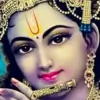



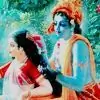


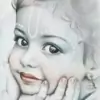



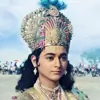


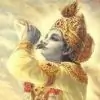



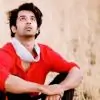

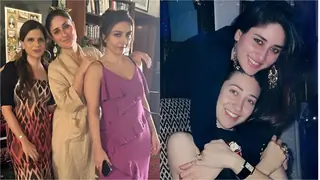


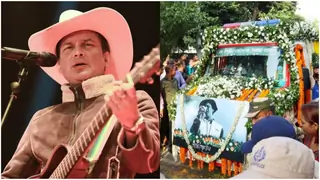


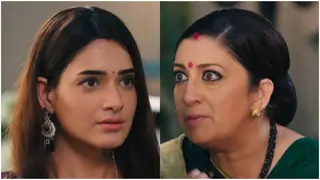

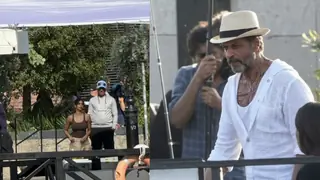



264